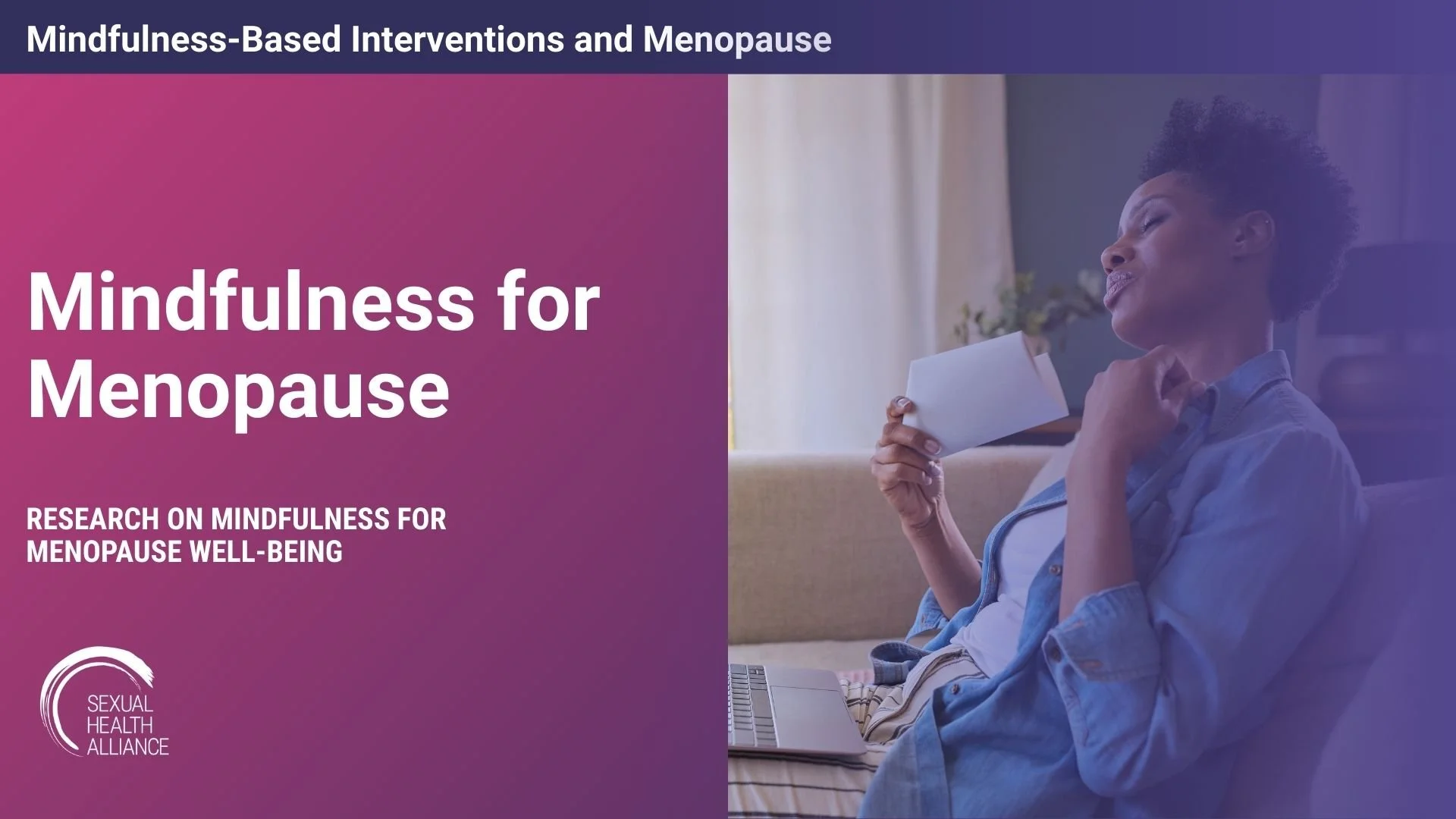Menopause marks the permanent end of menstruation, confirmed after 12 consecutive months without a period. This transition is a normal stage of life for people who menstruate, yet it can bring a mix of physical changes, hormonal shifts, and psychological challenges.
Common symptoms include hot flashes, mood changes, sleep disturbances, anxiety, stress, and sexual difficulties. While hormone replacement therapy (HRT) is often prescribed and highly effective, concerns about long-term risks (such as breast cancer and cardiovascular disease) have led many individuals to seek alternatives.
That’s where complementary and alternative medicine therapies (CAMTs) come in. These range from herbal supplements to yoga, and increasingly, mindfulness-based interventions (MBIs). Increasing evidence suggests that CAMTs can be effective in supporting those with menopausal symptoms. This week’s systematic review is on how mindfulness interventions affect menopausal symptoms, including quality of life and sexual function.
What are mindfulness-based interventions (MBIs)?
MBIs are mind-body therapies that are conducted in various ways and are increasingly popular among individuals with menopause for symptom management.
Mindfulness interventions are designed to create present-focused and purposeful awareness often through movements, meditation, and body scanning. These techniques have been shown to support emotional and physical fluctuations, improved sleep and decreased stress among women.
Common interventions include:
Mindfulness-Based Cognitive Therapy (MBCT)
Mindfulness-Based Stress Reduction (MBSR)
Acceptance and commitment therapy (ACT)
The Systematic Review: Summary of Findings on MBIs
I am a huge fan of systematic reviews because they summarize years (often decades) of research in one place.
This review included 19 randomized controlled trials with nearly 1,700 peri- and post-menopausal women across seven countries. Interventions varied among studies, ranging from 4 to 8 weeks and included daily or weekly sessions.
The review explored how MBIs influenced:
Menopausal symptoms
Quality of life
Sleep
Anxiety, depression, and stress
Mindfulness
Sexual function
Key Findings on Mindfulness for Menopause
Compared to the control groups in the studies (did not receive an intervention), women who participated in MBIs showed:
Menopausal symptoms: Significant overall improvement
Quality of life: Noticeable improvement including in the vasomotor, psychosocial, and physical domains, but not in the sexual domain
Sleep quality: Better sleep outcomes
Mental health: Reduction found for anxiety, depression, and stress
Mindfulness levels: Clear increases
Sexual function: Mixed evidence; one study found benefits, while the other found no relationship
Hot flashes: One study found small improvements, but not statistically significant
What Makes MBIs More Effective for Menopause?
The review found MBIs that were most effective in reducing anxiety when they included:
Longer programs: Programs that last at least 8 weeks
Longer sessions: Sessions are longer than 60 minutes
Homework: Participants have homework practice
Trained professionals: Interventions are delivered by trained psychologists or researchers
Implications for sexual health professionals
MBIs can be a safe and accessible tool to support menopausal individuals.
They are especially helpful for those who do not want, or cannot use, HRT.
Programs should aim for 8+ weeks and >60-minute sessions to maximize effectiveness.
Training non-specialists to deliver MBIs could expand access in community and clinical settings.
Conclusion: Mindfulness for Menopause
Menopause is a natural transition, but its symptoms can impact daily life and well-being. This review summarized a large amount of research that showed mindfulness-based interventions may improve quality of life, sleep, and mental health during menopause.
While more high-quality research is needed, especially on long-term effects and sexual function, MBIs offer a promising, low-risk, and scalable option for supporting individuals through this stage of life.
Resources to Learn More about menopause:
If you missed SHA’s This Girl is on Fire: Menopause Online Sexceptional Weekend, be sure to check out these resources from leading experts that presented:
Can masturbation help with menopause symptoms? with Dr. Justin Lehmiller and SHA
Sex & Menopause Talk: Intercourse should be pleasurable, not painful! with Dr. Lauren Streicher
Is menopause all doom and gloom? Are there positives to aging? with Dr. Cynthia Graham
Create sex that is worth wanting during menopause with Dr. Rachel Zar
Why it's important to get to know your vulva during menopause with Dr. Maria Uloko
Why should you improve hormone health? with Dr. Rena Malik
Written by Emma Sell-Goodhand, MPH
Emma is a doctoral student and Global One Health Fellow at North Carolina State University studying adolescent sexual health. She brings prior experience as a Technical Advisor at the World Health Organization.
Want to become an in-demand sexual health professional? Learn more about becoming certified with SHA!




